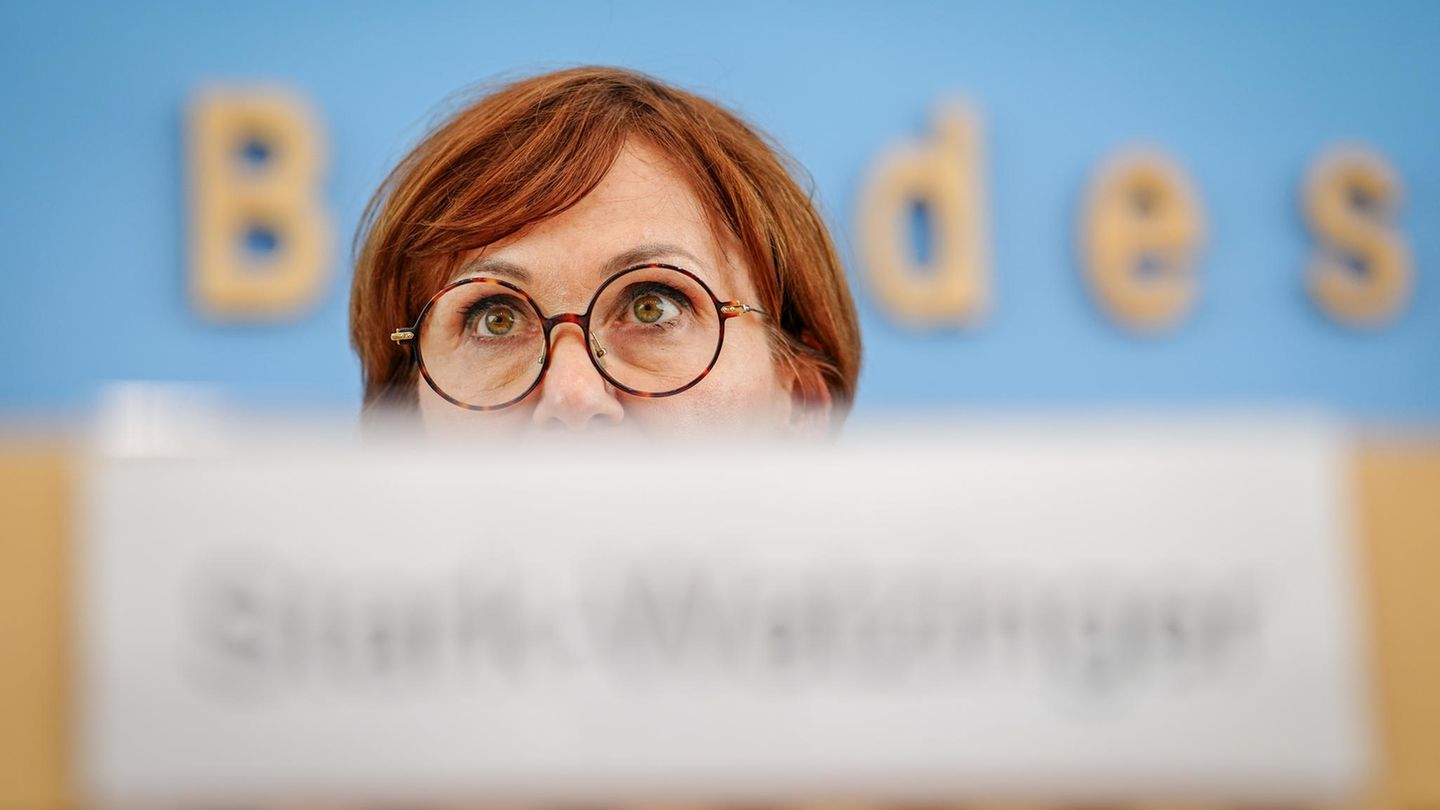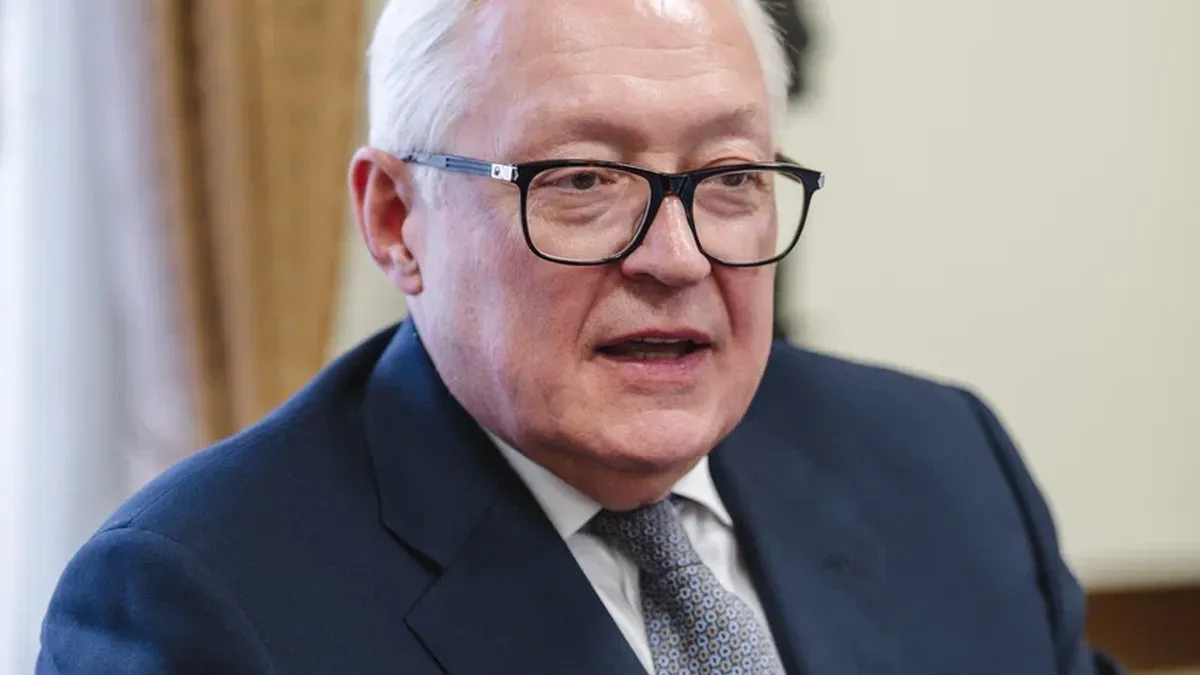Did Education Minister Bettina Stark-Watzinger sacrifice her State Secretary to distract from herself? star There are documents from her company that support this suspicion.
It was a departure with a bang. On Sunday at 8.35 p.m. – the “Polizeiruf” from Rostock was on TV at the time – the State Secretary in the Federal Ministry of Education and Research, Sabine Döring, tweeted: “So this part of my professional career will now come to an abrupt end. Stay tuned.”
That same evening, the ministry published a statement by Federal Research Minister Bettina Stark-Watzinger (FDP) that she had asked the Chancellor to… Döring’s actions had contributed to an impression that was likely to “permanently damage the trust of scientists in the Federal Ministry of Education and Research.”
The trigger was an open letter written on May 8th by a group of around 100 Berlin university lecturers, in which they expressed their solidarity with pro-Palestinian students. The board of the Free University was heavily criticized for allowing the police to clear a protest camp without “offering a discussion.” Students should “under no circumstances be subjected to police violence.” The Hamas attacks of October 7th are not mentioned in the letter.
The letter. Stark-Watzinger also immediately opposed the professors and strongly criticized the letter on the day it was published. “This statement by teachers at Berlin universities is astonishing,” she told the “Bild” newspaper on May 8, and compared the teachers with enemies of the constitution. Professors and lecturers in particular must “stand on the basis of the Basic Law.”
Last week, the NDR reported that the ministry’s management had investigated whether funding could be withdrawn from critical scientists. This was supported by excerpts from internal emails at the working level.
The official version, which Stark-Watzinger now also supports herself, is that her State Secretary Sabine Döring is said to have commissioned the audit without consulting the other members of the management. But there are doubts about this, as internal documents that were made available to the star present, suggest.
Delicate assignment for a list of names
On May 10, shortly after the open letter became known, the ministry was given the order to compile a list of the names of the lecturers who had signed the letter and received funding from the ministry. However, the person who commissioned the list was not Döring, but the press office and a department head. Internally, the order was justified by saying that they wanted to be prepared for press inquiries.
On May 13, State Secretary Döring is said to have given an internal order to examine the open letter for constitutional reasons. At the same time, an examination of funding law was apparently also started.
Sources close to Döring say that the Secretary of State only wanted to check whether the lecturers’ demand for a “police-free” university was constitutional. She never intended to check the grants.
This is how Döring himself put it in an internal email to all BMBF employees on 14 June. “When I issued the order, I had obviously expressed myself in a misleading way,” he says in the email, which was sent to the star “I did not intend to have the funding consequences for the signatories of the open letter examined – but my mandate was probably to be understood in this way.”
Döring also writes that the “ambiguity” was “cleared up” promptly in another telephone call and that as a result of the clarification there was no further review of funding.
This version is supported by the fact that, according to the documents submitted to the star The examination of the funding law was stopped in the course of the same week after Döring made it clear internally that she had never intended such an examination. The constitutional examination continued. It is said to have come to the conclusion that the open letter on the events at the Free University is constitutional.
Who stopped the process?
It seems puzzling that Stark-Watzinger claims to have known nothing about all this. After all, it was she herself who took a public stance very early on, accusing the authors of the open letter of unconstitutional behavior and thus making the case a major issue in her own department. Did her harsh public statements perhaps trigger the investigation in the first place? In any case, it is hard to imagine that the topic was not discussed intensively by the management.
The ministry is sticking to its previous statement. The minister was only informed of an email from the specialist level on 11 June “which addresses the examination of potential funding-related consequences for the signatories of an open letter,” a spokeswoman told the star on request: “The minister had neither commissioned nor wanted such an examination of potential consequences for funding law.”
This review was triggered by a request from State Secretary Döring. Döring explained that an audit of the funding law was “not her intention, but was probably to be understood as such,” according to the email from the State Secretary to employees. Nor did Döring herself stop the process. Rather, the head of the relevant department had already ensured on May 13 that “an audit of possible funding law consequences would not be pursued any further.”
The ministry did not comment on the question of whether the creation of a list of lecturers was commissioned on May 10 without Döring’s involvement and before the ministry’s own request for an inspection. Nor did it say whether such a list exists.
Bettina Stark-Watzinger’s shaky defense
The proceedings are unpleasant for the minister. According to Stark-Watzinger, she had heard nothing about the audit order or the alleged “misunderstanding” that Döring’s order is said to have triggered for around a month. If that is true, she would have to face accusations of not having her own bureaucracy under control. If it turns out in the further course of the affair that the management staff of her ministry were also informed of the “misunderstandings”, this would thwart her previous defense strategy of only learning about the events on June 11.
In any case, the open letter was discussed internally in her presence well beforehand. After a routine telephone conference on May 17, in which the minister also participated, the head of the management staff “at the suggestion of State Secretary Döring, requested by email from the head of the central department a classification of passages of the open letter that were also being discussed in public at the time,” the ministry announced. What was discussed in the telephone conference remains unclear.
Stark-Watzinger is already facing massive criticism. The question of the legal review of grants in connection with political statements is controversial for Stark-Watzinger because, as a liberal minister, she should actually attach particular importance to academic freedom and freedom of opinion.
Döring only moved to the ministry in 2023
The incident has been the cause of heated political debates for days. Schleswig-Holstein’s Education Minister Karin Prien (CDU) called Döring a “pawn sacrifice” and criticized the incident. Stark-Watzinger herself has refused to resign.
Döring has only been State Secretary in the Ministry of Education since February 2023. Before that, the philosopher, who is considered liberal, had taught at the Eberhard Karls University in Tübingen. Her focus: political philosophy and the theory of emotions. Her topics also included fear-free communication in public spaces.
Source: Stern
I have been working in the news industry for over 6 years, first as a reporter and now as an editor. I have covered politics extensively, and my work has appeared in major newspapers and online news outlets around the world. In addition to my writing, I also contribute regularly to 24 Hours World.




